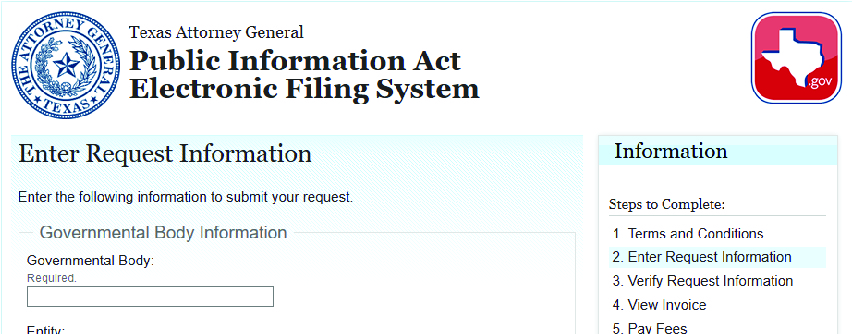Electronic Filing
The Texas Attorney General’s Open Records Division is now authorized to accept electronic submissions as part of the open records decision process through its new designated electronic filing system. The AG Open Records Division no longer accepts electronic submissions via fax or email; however, requests for opinions may be submitted, as always, through the U.S. mail system. Please note there is a $15 filing fee for electronic submissions. Click on the following link for further information: https://apps2.portal.texas.gov/OAGPIAeFiling/.
Board Member Personal E-Mail Addresses
A Texas appellate court recently held that, in response to a public information request, governmental bodies must disclose personal email addresses of elected officials when those email addresses are used to transact official government business. Under Texas Government Code Section 552.137 (the email address exception), “an e-mail address of a member of the public that is provided for the purpose of communicating electronically with a governmental body is confidential and not subject to disclosure under
Because it is used in conjunction with “governmental body” in the email exception, the term “member of the public” does not include a government official, such as a board member, who is the sender or recipient of the email. Accordingly, the court held elected officials’ personal email addresses are not included in the exception, and must be disclosed as public information.







Leave A Comment